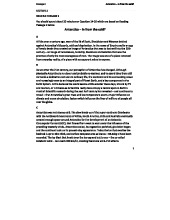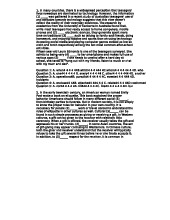






Preview text:
Legal Consequences of Prostitution in Vietnam for Foreigner
1. Legal Framework of Prostitution in Vietnam
In Vietnam, sex work is il egal under administrative laws rather than under the
Penal Code (although certain offenses may attract criminal sanctions under
the Code). According to the current legal provisions, the fol owing acts are strictly prohibited: 1. Buying sex; 2. Sel ing sex; 3. Harboring prostitution;
4. Organizing prostitution activities; 5. Forcing prostitution; 6. Brokering prostitution; 7. Protecting prostitution;
8. Abusing the service business for prostitution activities;
9. Other acts related to prostitution activities as prescribed by law.
Despite being governed by administrative law as opposed to criminal law,
Vietnamese sex workers were previously able to be detained under the 2003
‘Ordinance on Prostitution Prevention and Combat’. Article 23 of the
ordinance empowered the Ministry of Labor, Invalids and Social Affairs
(MOLISA) to detain and ‘re-educate’ sex workers in special centers cal ed ‘05
centers, where women could be forced to remain for up to 2 years. In June
2012 the ‘Law on Administrative Sanctions’ ended the effect of Article 23 and
resulted in the release of al sex workers detained in ‘05 centres. Fines are
now given instead for al offenses listed above.
Whilst general y fines are issued for sex-work-related offenses, the Penal
Code provides that those who ‘harbor prostitutes’ shal be sentenced to
between one and seven years of imprisonment. Where ‘harboring’ involves
some form of coercion, the penalty increases to between five and fifteen years imprisonment.
Additional y, whilst according to the law, detention of sex workers is rare,
practical y it happens often. There are reports of periodic anti-prostitution
police crackdowns. One report describes streets being blocked without
warning and people being taken into custody unless they could prove that
they had a legitimate reason to be on the street. Thus Vietnamese sex
workers are always liable to fines, and sometimes may even be arbitrarily arrested and detained.
2. Involvement of Foreigners in Prostitution
The involvement of foreigners in Vietnam's prostitution industry is a complex
issue with severe legal and social implications. Foreigners as Clients
Sex Tourism: Many foreign visitors engage in sex tourism, contributing to the demand for prostitution.
Legal Consequences: Foreigners found patronizing prostitution face legal
penalties, including fines, imprisonment, and deportation.
Health Risks: Engaging in unprotected sex increases the risk of sexual y transmitted infections (STIs).
Foreigners as Traffickers
Exploitation: Foreigners are sometimes involved in human trafficking
networks, exploiting Vietnamese women and children.
Criminal Enterprises: These individuals often work in conjunction with local criminal organizations.
Severe Penalties: Those caught involved in sex trafficking face harsh legal consequences.
Sex Tourism and Its Implications in Vietnam
Sex tourism is a significant problem in Vietnam, contributing to various social, economic, and legal issues. Definition and Scope
Commercial Sexual Exploitation: Sex tourism involves traveling to a
foreign country primarily or exclusively to engage in sexual activity with prostitutes.
Demand Creation: The demand from foreign tourists fuels the prostitution industry.
Impact on Local Communities
Social Il s: Sex tourism is linked to increased rates of sexual y transmitted
infections (STIs), HIV/AIDS, and other social problems.
Exploitation: The sex industry can be a breeding ground for human
trafficking and exploitation, particularly of women and children.
Economic Disparities: While sex tourism can generate income for some
individuals, it often exacerbates economic inequalities.
Negative Stereotypes: The association with sex tourism can damage a
country’s reputation and hinder sustainable tourism development.
Legal and Ethical Implications
Human Rights Violations: Sex tourism is a form of human rights abuse, as
it exploits vulnerable individuals for commercial gain.
Child Exploitation: The involvement of children in sex tourism is a particularly heinous crime.
Legal Consequences: Tourists engaging in sex tourism face legal penalties,
including fines, imprisonment, and deportation.
Ethical Concerns: Engaging in sex tourism supports an industry that often
involves exploitation and human trafficking.
Addressing sex tourism requires a comprehensive approach involving law
enforcement, social services, and community engagement.
3. Criminal Charges and Penalties
Foreigners involved in prostitution in Vietnam face severe legal consequences.
Specific Criminal Charges
Prostitution: Engaging in sexual activities for monetary gain is a direct violation of Vietnamese law.
Pimping: Facilitating or organizing prostitution is a serious crime.
Human Trafficking: If the involvement includes the exploitation of others,
charges related to human trafficking wil be applied. Range of Penalties
Fines: Significant financial penalties are imposed for prostitution-related offenses.
Imprisonment: Depending on the severity of the crime, foreigners can face imprisonment terms.
Deportation: Expulsion from Vietnam is a common consequence for
foreigners convicted of prostitution-related crimes.
Blacklisting: Individuals convicted of such offenses may be added to
blacklists, restricting future travel to Vietnam.
Factors Affecting Punishment
Role in Crime: The specific role of the foreigner in the prostitution network
(client, pimp, trafficker) affects the severity of punishment.
Circumstances of the Crime: Factors such as the number of victims
involved and the duration of the criminal activity influence sentencing.
Cooperation with Authorities: Showing remorse and assisting in
investigations might lead to reduced penalties.
It is essential to understand the severe legal consequences of engaging in
prostitution in Vietnam to avoid dire personal and legal repercussions.
4. Deportation and Visa Cancel ation
Foreigners convicted of prostitution-related offenses in Vietnam face severe
consequences, including deportation and visa cancel ation. Deportation
Mandatory Deportation: Foreigners found guilty of prostitution are typical y
deported from Vietnam upon completion of their sentence.
Travel Restrictions: Additional restrictions on future entry into Vietnam may be imposed. Visa Cancel ation
Invalidation of Visa: The visa held by the foreign individual is usual y canceled upon conviction.
Blacklisting: In some cases, the individual may be added to a blacklist,
preventing future entry into the country. Re-entry Restrictions
Travel Bans: Foreigners deported for prostitution-related offenses often
face travel bans, prohibiting their return to Vietnam.
Long-Term Consequences: These restrictions can have significant impacts
on personal and professional life.
It is essential to understand the severe consequences of engaging in
prostitution in Vietnam. These penalties serve as a deterrent and protect the
country from the negative impacts of this il egal activity.
5. Blacklisting and Travel Bans
Foreigners convicted of prostitution-related offenses in Vietnam face severe
consequences that extend beyond deportation and visa cancel ation. Inclusion in Blacklists
Shared Information: The Vietnamese government shares information about
individuals convicted of serious crimes, including prostitution, with other countries.
International Cooperation: This cooperation aims to prevent these
individuals from engaging in similar activities elsewhere. Travel Restrictions
Visa Denials: Individuals blacklisted due to prostitution-related convictions
may face difficulties in obtaining visas to other countries.
Border Chal enges: Even with a valid visa, these individuals might
encounter problems at border checkpoints.
Reputation Damage: Being blacklisted can have long-term consequences
for personal and professional reputation.
It is crucial to understand that the repercussions of involvement in prostitution
extend beyond the immediate legal consequences and can have lasting
impacts on an individual's life. 6. Additional Consequences
Beyond the legal penalties, individuals involved in prostitution face a range of additional consequences.
Reputation Damage and Social Stigma
Personal Reputations: Involvement in prostitution can have a lasting
negative impact on an individual's reputation, regardless of nationality.
Social media also make damage to personal reputations more widely spread than ever before.
Social Ostracism: Individuals wil face social stigma and rejection from
family, friends, and communities. Financial Loss
Legal Fees: Defense costs and legal fees associated with prostitution-
related charges can be, if not, wil be substantial. And after al that, there is a
high chance imprisonment wil be declared as punishment for prostitution-
related charges, especial y regarding foreign elements.
Fines: Financial penalties imposed by the court can lead to significant financial hardship.
Loss of Income: Imprisonment and deportation can result in job loss and
financial instability, and this can be arguably the smal est loss a person can
expect to lose regarding this involvement.
Impact on Personal Relationships
Strained Relationships: Involvement in prostitution can damage personal relationships and family ties.
Emotional Distress: The psychological impact of the experience can be
severe, leading to depression, anxiety, and other mental health issues.
It is essential to understand the far-reaching consequences of engaging in
prostitution, both for individuals involved and for society as a whole. 7. Prevention and Awareness
Addressing the issue of prostitution requires a multi-faceted approach that
includes prevention, awareness, and support services.
Public Awareness Campaigns
Education: Promoting education and awareness about the dangers of
prostitution, sex trafficking, and exploitation.
Social Stigma: Chal enging societal at itudes and reducing the stigma associated with sex work.
Safe Sex Education: Promoting comprehensive sex education to prevent
the spread of sexual y transmitted infections. Government Initiatives
Economic Development: Supporting economic opportunities, especial y for
vulnerable populations, to reduce the push factors leading to prostitution.
Social Services: Investing in social services, such as education, healthcare, and poverty al eviation.
Border Control: Strengthening border controls to prevent human trafficking.
Role of NGOs and Civil Society
Support Services: Providing support and rehabilitation for victims of
prostitution and sex trafficking.
Advocacy: Advocating for policy changes and increased funding for anti- prostitution efforts.
Community Engagement: Building awareness and support within communities.
By combining prevention, education, and support services, it is possible to
reduce the demand for prostitution and protect vulnerable individuals 8. Conclusion
Prostitution is a complex social issue with far-reaching legal, social, and
economic consequences. In Vietnam, it is explicitly il egal, with severe
penalties for those involved, including foreigners. While the government has
implemented measures to combat prostitution, chal enges such as organized
crime, poverty, and social stigma persist.
Addressing prostitution requires a multifaceted approach that includes law
enforcement, prevention, and victim support. It is essential to foster a society
that respects human rights, promotes gender equality, and provides
opportunities for al individuals. By working together, governments, NGOs,
and communities can make significant progress in combating this issue and
protecting vulnerable populations.
Document Outline
- Legal Consequences of Prostitution in Vietnam for
- 1. Legal Framework of Prostitution in Vietnam
- 2. Involvement of Foreigners in Prostitution
- Sex Tourism and Its Implications in Vietnam
- Definition and Scope
- Impact on Local Communities
- Legal and Ethical Implications
- Sex Tourism and Its Implications in Vietnam
- 3. Criminal Charges and Penalties
- 4. Deportation and Visa Cancellation
- Deportation
- Visa Cancellation
- Re-entry Restrictions
- 5. Blacklisting and Travel Bans
- 6. Additional Consequences
- Reputation Damage and Social Stigma
- Financial Loss
- Impact on Personal Relationships
- 7. Prevention and Awareness
- Public Awareness Campaigns
- Government Initiatives
- Role of NGOs and Civil Society
- 8. Conclusion




